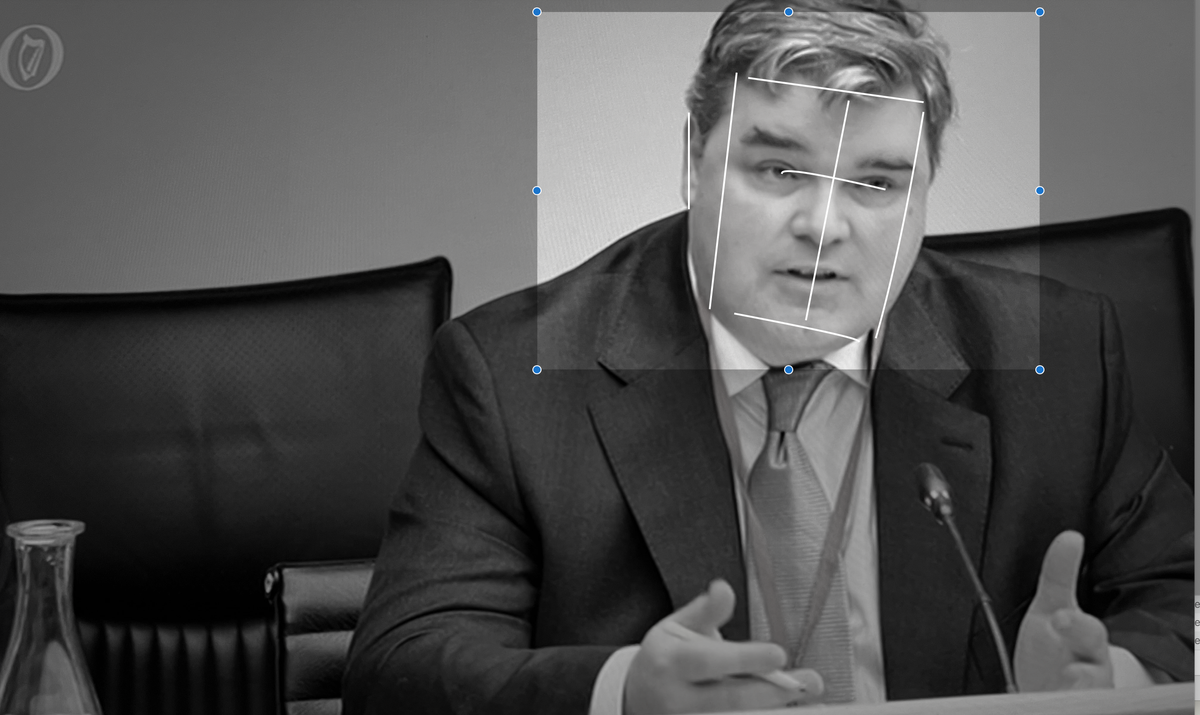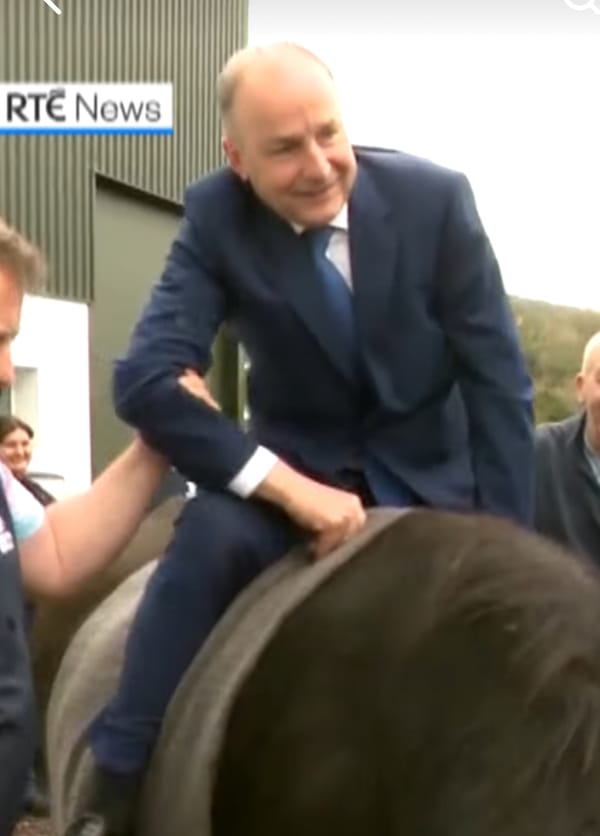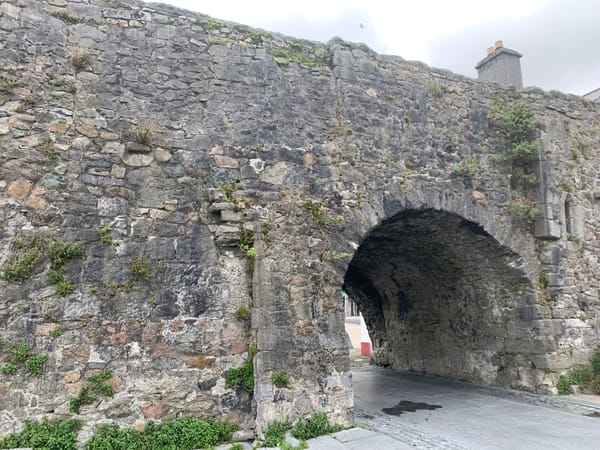The Gist: Facing Facial Recognition Down
The Facial Recognition Bill just can't get no respect. This is the Gist.

The Department of Justice looked to push forward its par-baked legislation on introducing facial recognition technology to An Garda Síochána.
Contrary to their initial plan, the Department had been pushed into letting the Justice Committee hold hearings on the quality of their proposed legislation. This stage is called pre-legislative scrutiny. Consider it a sort of institutional effort by the legislature to avoid laws coasting onto the books in a state of unchallenged group-think.
So, on Tuesday the Committee heard from the Deputy Commissioner of the DPC, from me and Olga Cronin (for DRI and ICCL), from the Rape Crisis Network of Ireland and from the Law Society of Ireland. Then they heard from Drew Harris, the Garda Commissioner and a sentence or two from the Department officials who were promoting the Heads of Bill before the Committee.
Then it heard from a bevvy of academic experts, including Dr. Abeba Birhane, a senior adviser in AI accountability at the Mozilla Foundation and adjunct assistant professor in TCD, Dr. Daragh Murray, senior lecturer and IHSS fellow at the school of law at Queen Mary University of London, Dr. Nessa Lynch, law lecturer University College Cork and research fellow at Victoria University of Wellington, New Zealand, Professor David Kaye from UC Irvine school of law and Ms Hinako Sugiyama, digital rights fellow and lecturer in UC Irvine school of law and Dr. Ciara Bracken-Roche assistant professor at the school of law and criminology at Maynooth University.
One way to gauge if a piece of legislation has been successfully drafted is whether the state's data regulator, civil society, a wealth of leading international academic experts and the representative for an entire legal profession comes in and points out that it would be illegal.
And that's what happened that chilly Tuesday.
Amongst the many peculiar elements of that hearing was the Garda assertion that they intended to never use their Facial Recognition powers, in this Facial Recognition Bill, to recognise faces.
It does not make definitive identifications. We do not have a reference database, as is sometimes misunderstood, that we can compare against. We are not attempting to make identifications.
- Andrew O'Sullivan, chief information officer with An Garda Síochána
This may seem strange, as at first glance, it paints the Government and Garda thirst for facial recognition legalisation akin to a bald man demanding legislation for free combs. However, the key part of this statement was easy to miss. It comes earlier in the paragraph. Let's look at that quote again, with the extra context.
I will make the case again that what we are primarily talking about in use cases Nos. 1 to 8 in our submission is the use of the technology to filter, cluster or sift evidence and to boil it down to a series of suggested cases at which the examiner would look. It does not make definitive identifications. We do not have a reference database, as is sometimes misunderstood, that we can compare against. We are not attempting to make identifications. (emphasis added)
The Garda submission did not have 8 use cases. It had 9. And the ninth one was, indeed, recognising faces by reference to a database of biometric images.
- "Retrospective person remote biometric identification – Search a database of facial images (with associated identity) for a match with an image"
So all the denials of such usage were specifically worded to deliberately exclude the use case that positively says they will do it.
A Face in the Crowd
If you are going to run facial recognition on crowds of people, you need something to match them against- so you can recognise them.
Here's Dr. Daragh Murray explaining this, and also indicating where the UK police get their reference database.
With regard to the existence of a reference database, for facial recognition to be effective there has to be a reference database. If a person in a crowd is identified, the benefit of facial recognition is being able to match that face against a database to know who you are looking for. To say this is not present seems difficult to believe. In the UK the reference database is the police national database, which is a database of custody images. There are approximately 19 million images.
- Dr. Daragh Murray, Queen Mary University of London
Now, Ireland doesn't have a custody image database of anything like that scale. But what it does have is a national biometric database of the majority of the entire population's facial images, in the form of the PSC card database. You know, the one with the headline "‘No legal basis’ for photo database created using Public Services Card". And, wouldn't you know it, the text of the Heads of Bill is drawn so broadly as to try to allow access to exactly that set of images.
Section 3 of the General Scheme of the Garda Síochána (Recording Devices) (Amendment) Bill;
(i) nothing in this Part shall prevent An Garda Síochána from processing and storing images which have been legally provided by other national or international organisations
And Section 7 confirms;
a member of Garda personnel may utilise biometric identification to search the following in order to locate, follow the movements or identify a person:
(a) any images or footage that An Garda Síochána legally retains;
(b) any images or footage that An Garda Síochána can legally access.
This is not what was promised in June 2023, as reported by the Law Society Gazette. Then, the Government said that;
The scraping of open-source images from social media will not be permitted, nor will the purchase of commercial databases against which FRT could be run.
The use of other public-service databases, such as the Public Services Card and passport images, by the Gardaí for FRT will not be permitted.
It is hard, having attended the Committee meeting and listened to the evasive responses from the Gardaí to the wall of warnings raised against this legislation, to think that the Committee will not look for significant amendments to the proposed legislation.
In the meantime, we may enjoy the small insight into Senator McDowell's interior life offered by this debate. "I have often wondered whether I am entitled to go around my neighbourhood using a dashcam as a local vigilante."
Please refer back to this, should a cowled figure broodingly emerge from the darkness to fight crime in Dublin 6, growling "I'm Dashman".



